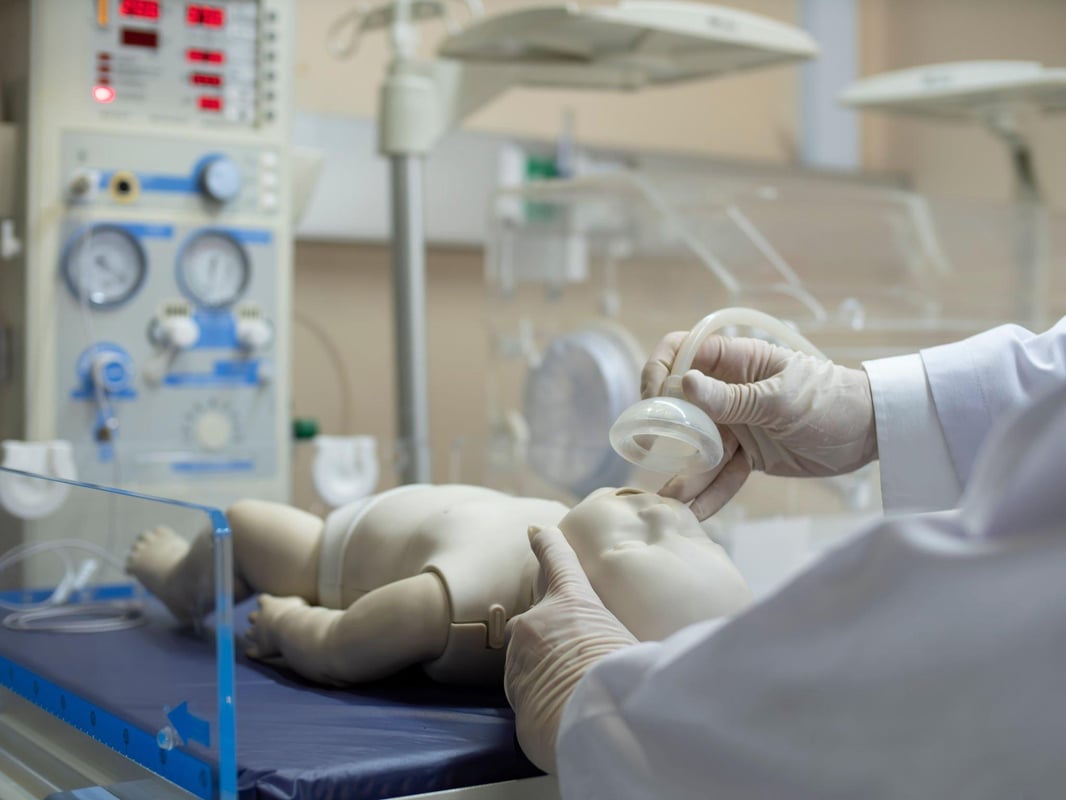
Financial aid (may be available)

Financial aid (may be available)

Financial aid (may be available)

Financial aid (may be available)
$276 total
$2,075 total
$270 total
$410 total
$365 total
$150 total
No cost info
$285 total
$150 total
No cost info
If you live in Harrisburg and are interested in finding a Pediatric Advanced Life Support (PALS) class near you, look no further. This blog post is designed to help you understand what PALS is, the training requirements, what to look for in a class, day-to-day class expectations, the certification process, and how to find related jobs. We'll also explore other classes you can take after becoming PALS certified.

Pediatric Advanced Life Support (PALS) is a program designed to improve the outcomes for critically ill and injured children. This is achieved through the application of evidence-based medicine. If you're a healthcare provider who responds to emergencies in infants and children, and you work in a hospital or pre-hospital setting, then a PALS course could be right for you.
The training requirements for PALS certification can vary depending on the institution offering the course. However, a few common requirements include:
Prior CPR certification: Before you can enroll in a PALS course, you generally need to be certified in CPR. This is because the PALS curriculum builds on the foundational skills and knowledge acquired in a CPR course.
Medical background: Many PALS courses require students to have a healthcare background. This is because PALS training is often advanced and specific, designed for medical professionals such as doctors, nurses, and paramedics.
When you're searching for a PALS class, there are several factors you should consider:
Accreditation: First and foremost, ensure that the course is accredited by a reputable organization, such as the American Heart Association.
Comprehensive curriculum: The course should cover a wide range of pediatric emergencies, including cardiac, respiratory, and shock-related emergencies.
Hands-on training: Ideally, the course should offer practical training using mannequins and medical equipment to simulate real-life scenarios.
Typically, a PALS course is structured around a series of lectures, group discussions, and practical simulations. Topics covered include:
Basic life support skills, such as CPR and the use of automated external defibrillators (AEDs)
Recognition and treatment of infants and children at risk for cardiopulmonary arrest
Effective strategies for resuscitation through the evaluation and management of respiratory emergencies, shock, and arrhythmias
The PALS certification process usually involves two main components: the course itself and a final exam. After completing the course, you'll need to pass a written and practical exam to demonstrate your knowledge and skills. Once you pass, you'll receive your PALS certification, which is typically valid for two years.
After you've obtained your PALS certification, you may be interested in finding a job that allows you to use your new skills. Many healthcare jobs, particularly those in emergency medicine and pediatrics, may require or prefer candidates with PALS certification. On platforms like Dreambound, you can find a variety of job listings in the healthcare field.
After earning your PALS certification, you might want to expand your skills further. Here are a few related classes that you might consider:
Advanced Cardiovascular Life Support (ACLS): This course builds on the foundational knowledge of BLS and PALS, focusing on the management of cardiac arrest and other cardiovascular emergencies.
Neonatal Resuscitation Program (NRP): This course is designed for healthcare professionals involved in the delivery and care of newborns.
If you're interested in furthering your healthcare career in Harrisburg, there are several other training opportunities you might consider:
EMT Training: Becoming an Emergency Medical Technician is another way to be involved in emergency healthcare. You can find more information about EMT training in Pennsylvania here.
Certified Nursing Assistant (CNA) Training: CNAs play a critical role in patient care. Find out more about becoming a CNA in Pennsylvania here.
Pharmacy Technician Training: This course could be an excellent fit if you're interested in both healthcare and pharmacology. Learn more about how to become a Pharmacy Technician in Pennsylvania here.
Maintaining your PALS certification is crucial. It typically involves taking a refresher course and passing an exam every two years. But dont worry, the renewal process is usually simpler and shorter than the initial certification.
Pursuing a PALS certification can be a rewarding step in your healthcare career, especially if you're passionate about improving outcomes in critically ill pediatric patients. Remember to consider the training requirements, what to look for in a class, and what to expect from the day-to-day class. After certification, Dreambound can be a useful tool to find relevant job opportunities. With the additional training suggestions provided, you can continue to expand your skills and expertise in the healthcare field. Happy learning!
Dreambound has written dozens of in-depth guides on how to get started in this field, with information specific to your city. If you're located somewhere else or thinking about moving, check out some other guides we've written:
If you're exploring various professional paths, Dreambound has in-depth guides to help assist you. Explore a few of these resources below.
Dreambound's platform allows prospective students to find the right educational program for them through searching, filtering, and connecting with our extensive selection of career & technical education partners.
Dreambound has over 70 programs across healthcare, technology, business, and industrial trades. This includes programs such as Medical Billing, Cybersecurity, and welding.
Some of our schools offer financial aid for those who qualify. Many others offer payment plans, where you can pay the cost of class over time.
Yes, Dreambound offers many online programs. On Dreambound's search, you can filter by online, in-person, and hybrid (part online, part in-person).
Dreambound is completely free for you to use! We are supported by schools and organizations who pay to advertise on our website, so we can offer all of our career resources for free.